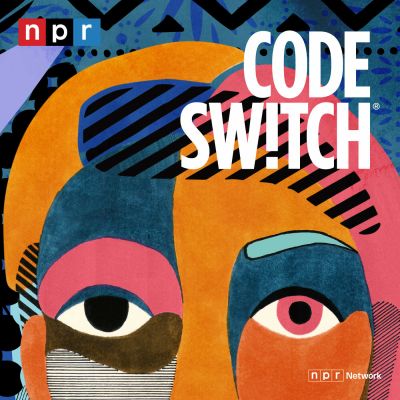What's CODE SWITCH? It's the fearless conversations about race that you've been waiting for. Hosted by journalists of color, our podcast tackles the subject of race with empathy and humor. We explore how race affects every part of society — from politics and pop culture to history, food and everything in between. This podcast makes all of us part of the conversation — because we're all part of the story. Code Switch was named Apple Podcasts' first-ever Show of the Year in 2020.Want to level up your Code Switch game? Try Code Switch Plus. Your subscription supports the show and unlocks a sponsor-free feed. Learn more at plus.npr.org/codeswitch
https://www.npr.org/podcasts/510312/codeswitch
Gesamtlänge aller Episoden: 18 days
The Rise and Fall of the Panama Canal
The Panama Canal has been dubbed the greatest engineering feat in human history. It's also (perhaps less favorably) been called the greatest liberty mankind has ever taken with Mother Nature. But due to climate change, the Canal is drying up and fewer than half of the ships that used to pass through are now able to do so. So how did we get here? Today on the show, we're talking to Cristina Henriquez, the author of a new novel that explores the making of the Canal...
episode 454: Reflecting on the legacy of O.J. Simpson
With the news of O.J. Simpson's death on Thursday, we're revisiting our reporting from 2016, where we took a look into how Simpson went from being "too famous to be Black," to becoming a stand-in for the way Black people writ-large were mistreated by the U.S. carceral system.
Learn more about sponsor message choices: podcastchoices.com/adchoices
NPR Privacy Policy
episode 453: How Frederick Douglass launched generations of Black and Irish solidarity
What's a portrait of Frederick Douglass doing hanging in an Irish-themed pub in Washington, D.C.? To get to the answer, Parker and Gene dive deep into the long history of solidarity and exchange between Black civil rights leaders and Irish republican activists, starting with Frederick Douglass' visit to Ireland in 1845.
Learn more about sponsor message choices: podcastchoices.com/adchoices
NPR Privacy Policy
episode 452: WTF does race have to do with taxes?
It's that time of year again: time to file your taxes. And this week on the pod, we're revisiting our conversation with Dorothy A. Brown, a tax expert and author of The Whiteness Of Wealth: How The Tax System Impoverishes Black Americans And How To Fix It. She talks through the racial landmines in our tax code and how your race plays a big role in whether you get audited, how much you might owe the IRS, which tax breaks you can get, and even which benefits you can claim...
Who does language belong to? A fight over the Lakota Language
Many Lakota people agree: It's imperative to revitalize the Lakota language. But how exactly to do that is a matter of broader debate. Should Lakota be codified and standardized to make learning it easier? Or should the language stay as it always has been, defined by many different ways of writing and speaking? We explore this complex, multi-generational fight that's been unfolding in the Lakota Nation, from Standing Rock to Pine Ridge...
episode 450: Getting let down by the 'Great Expectations' of electoral politics
This episode is brought to you by our play cousins over at NPR's It's Been A Minute. Brittany Luse chops it up with New Yorker writer and podcast host Vinson Cunningham to discuss his debut novel Great Expectations. It's a period piece that follows the story of a young man working on an election campaign that echoes Obama's 2008 run. Brittany and Vinson discuss American politics as a sort of religion - and why belief in politics has changed so much in the last decade...
episode 449: In the world of medicine, race-based diagnoses are more than skin deep
We've probably said it a hundred times on Code Switch — biological race is not a real thing. So why is race still used to help diagnose certain conditions, like keloids or cystic fibrosis? On this episode, Dr. Andrea Deyrup breaks it down for us, and unpacks the problems she sees with practicing race-based medicine.
Learn more about sponsor message choices: podcastchoices.com/adchoices
NPR Privacy Policy
episode 448: This conspiracy theory about eating bugs is also about race
Gene Demby and NPR's Huo Jingnan dive into a conspiracy theory about how "global elites" are forcing people to eat bugs. And no huge surprise — the theory's popularity is largely about its loudest proponents' racist fear-mongering.
Learn more about sponsor message choices: podcastchoices.com/adchoices
NPR Privacy Policy
episode 447: The musical legacy of Japanese American incarceration
In February of 1942 after the bombing of Pearl Harbor, the U.S. government issued an executive order to incarcerate people of Japanese descent. That legacy has become a defining story of Japanese American identity. In this episode, B.A. Parker and producer Jess Kung explore how Japanese American musicians across generations turn to that story as aw ay to explore and express identity. Featuring Kishi Bashi, Erin Aoyama and Mary Nomura...
episode 446: Why menthol cigarettes have a chokehold on Black smokers
In the U.S., flavored cigarettes have been banned since 2009, with one glaring exception: menthols. That exception was supposed to go away in 2023, but the Biden administration quietly delayed the ban on menthols. Why? Well, an estimated 85 percent of Black smokers smoke menthols — and some (potentially suspect) polls have indicated that a ban on menthols would chill Biden's support among Black people. Of course, it's more complicated than that...
